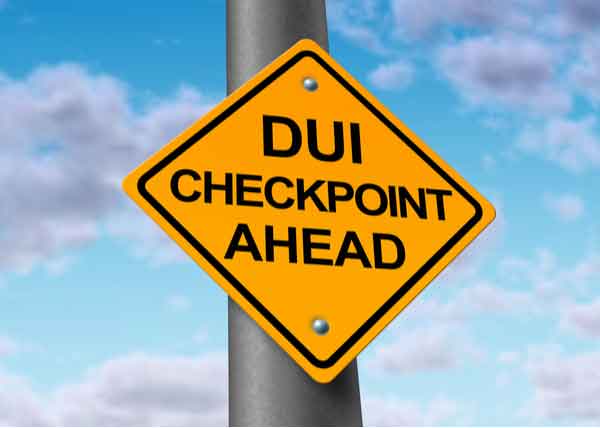A DUI is a big deal and has major consequences. One of the main parts of DUI law in Indiana is implied consent which means you agree to take a chemical test if suspected of driving impaired. Understanding these laws is important when you work with an experienced Indianapolis DUI attorney for your DUI case.
This post will go over the legal framework of implied consent law, law enforcement’s involvement, and what happens if you don’t comply.
Definition of Implied Consent Law
Implied consent law is a law in every state in the US that requires drivers to take a blood alcohol concentration (BAC) test when a law enforcement officer has probable cause to believe they are driving under the influence (DUI). By obtaining a driver’s license or driving on public roads, you are deemed to have given consent to these tests. This framework allows law enforcement to enforce DUI laws and keep us safe.
Purpose
The purpose of implied consent law is twofold: to keep people from driving under the influence and to get evidence when impairment is suspected. These laws are to help law enforcement identify and prosecute those who choose to drive impaired. Drunk driving carries serious legal implications and penalties, making implied consent law crucial in addressing and preventing such offenses.
By requiring BAC tests, implied consent law makes sure there is concrete scientific evidence to prove or disprove a driver’s level of intoxication. This is not only a fair administration of justice but also a big deterrent to those who might otherwise drive after drinking.
How it Works
Implied consent law kicks in when you get a driver’s license or drive on public roads. By doing so, you are considered to have given consent to chemical tests, including blood, breath, or urine tests, if a law enforcement officer has reason to believe you are impaired. This is not something you agree to when you get stopped; it’s implied by you choosing to drive.
Law Enforcement
For implied consent law to be enforced, a police officer must first have probable cause to believe you are impaired. This could be erratic driving, the smell of alcohol, or other signs of intoxication. Once probable cause is established, the police officer can ask you to take a BAC test, which could be breath, blood, or urine. The police officer must also inform you that if you refuse to take the test, there will be legal consequences.
Refusal Consequences
Such refusal to take a BAC test can result in immediate administrative penalties such as suspension of your driver’s license. These penalties are meant to be quick and severe to show how serious refusal is.
In many states, the refusal itself can be used as evidence in court, which can lead to harsher penalties in a DUI case. While criminal penalties are not imposed solely for refusing a blood test, the administrative consequences can really impact your ability to drive and your livelihood.
Chemical Tests
Knowing what tests are covered under the implied consent law is important as they determine a driver’s level of intoxication during a DUI investigation.
Police officers are responsible for administering these tests and must follow specific procedures, including reading the statutory advisement to suspects immediately after arrest.
Breath Tests
One of the most common ways to measure blood alcohol concentration (BAC) is the breath test, often done with a device called a breathalyzer. This test is usually done at the roadside during a traffic stop or at the police station. The breathalyzer measures the amount of alcohol in the breath which correlates to the amount of alcohol in the blood.
Because it’s easy to use and fast, the breath test is a primary tool for law enforcement in DUI cases. But its accuracy can be affected by many factors such as the calibration of the device or the presence of certain substances in the mouth which can be contested in court.
Blood Tests
Blood tests are considered the most accurate way to determine a person’s BAC. This test involves drawing blood from the driver which is then sent to a lab to measure the exact amount of alcohol. Blood tests are used in more serious DUI cases or when the breath test is inconclusive or challenged. While blood tests give a precise BAC reading they are more invasive than breath tests and require proper procedures to be followed such as getting a warrant in some cases to make the results admissible in court.
Urine Tests
Urine tests are another way to detect alcohol and drugs in a person’s system but less common than breath or blood tests. This type of test is used when blood or breath tests are not available or when you need to test for substances other than alcohol such as drugs.
However, urine tests are generally less reliable for measuring BAC because alcohol may not show up in the urine immediately after consumption and the concentration in the urine can vary widely. Because of these limitations, urine tests are less used in DUI cases but can still be used in certain circumstances, especially in drug testing.
Legal Consequences
In Indiana, as in many other states, a driver can still be charged with DUI even if they refuse to take a BAC test or if no test is done. DUI lawyers play a crucial role in helping drivers understand their rights and navigate the legal consequences of DUI and test refusal. Law enforcement can use other evidence such as the officer’s observations, witness statements, and the results of the field sobriety tests to establish probable cause for a DUI arrest.
The absence of a BAC test does not prevent the prosecution from charging you but it may make the case harder to prove. Refusing to take a test does not eliminate the risk of a DUI conviction it just changes the type of evidence that will be used in court.
BAC Test Results in Court
When BAC test results are available they are a critical piece of evidence in DUI cases. In Indiana, a BAC of 0.08% or higher is considered legal intoxication and is a “DUI per se” charge. This means the prosecution can use the BAC result alone to prove intoxication without needing any other evidence of impairment.
But even if the BAC is below 0.08% a driver can still be charged with DUI if other evidence shows impairment. The reliability and admissibility of BAC test results can be challenged by defense attorneys who can question the accuracy of the testing equipment, the procedure used or the circumstances under which the test was done.
Consequences of Test Refusal
Refusing to take a BAC test has big legal implications in Indiana. Beyond the automatic administrative penalties of license suspension refusal can be used by the prosecution to argue the driver knew they were intoxicated and was trying to avoid providing evidence of it.
This can lead to an adverse inference by the court or jury and potentially a more severe outcome. In cases where refusal results in loss of driving privileges this can have further consequences such as impact on employment or personal mobility.
Speak With an Experienced Indianapolis DUI Lawyer Today!
If you or someone you know is facing a DUI charge or has questions about implied consent law in Indiana, don’t wait to seek help. The consequences of a DUI conviction can be severe, affecting your driving privileges, finances, and future.
Contact us at 317.671.8965 for a free case review today!










